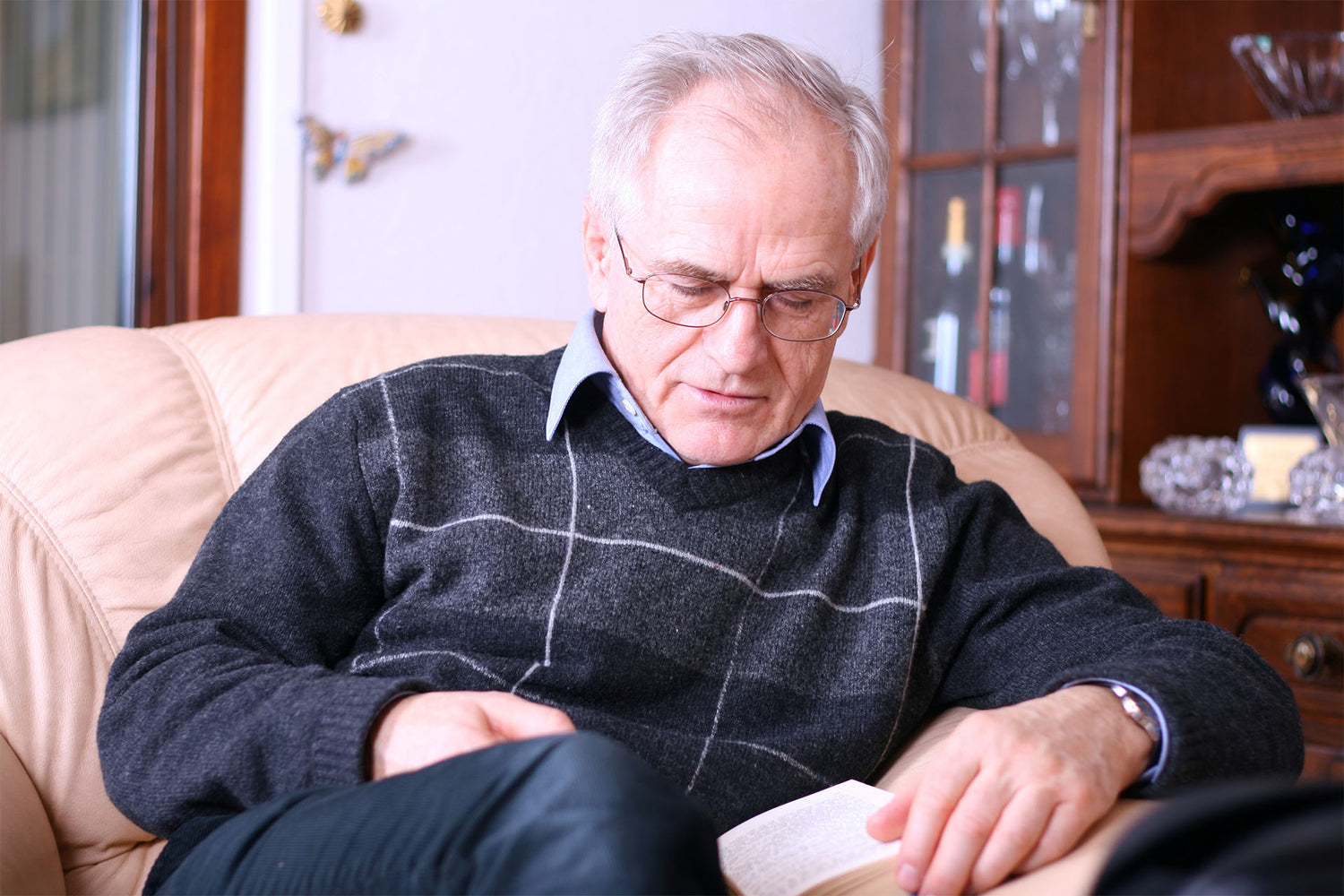Why Does Grandpa Nap so Much?
You might seem concerned when grandpa falls asleep in the middle of the day, but it’s perfectly normal and just one of the many ways your body changes as you get older. Although young people try to get away with the least amount of sleep possible, grandparents know the value of taking a short nap or going to bed early. Once you get to grandpa’s age, your body will start to experience differences in how well you sleep and how long you spend in bed.
How Sleep Changes with Age
Although some grandparents don’t notice anything different as they age, you might hear yours complain about how poorly they slept the night before. There are a few reasons grandpa may have problems sleeping and a few ways to help him sleep better.
-
How the Body’s Internal Clock Works
The clock on the wall, on your watch, or on your phone keeps time so that you know when it’s time to do certain activities. Your body’s internal clock works similarly; termed suprachiasmatic nucleus (SCN), it’s located in the brain and made up of approximately 20,000 cells. The SCN controls how your body moves through your day in something called circadian rhythms. These rhythms are responsible for letting your body know you’re hungry or feel sleepy.
Grandpa may notice changes in how he sleeps because the SCN can start to malfunction as he gets older. One reason is because he spends a lot of time indoors–he may only be exposed to daylight for around an hour each day. That’s not nearly enough for his body to maintain the rhythm like your body does being exposed for several hours each day. I’m sure grandpa would love it if you asked him to go to the park or walk around the neighborhood more often. -
Sleep Architecture
Every night, you unknowingly go through multiple stages of sleep. As you get older, your body starts to change how these stages are designed. Older adults have been found to spend more time in the earlier, lighter sleep stages and less time in the later, deeper stages. As grandpa moves through these stages, he may wake up more during the night and feel less rested when he wakes up than he did when he was younger. -
Justice for Nap Time
Most kids dread nap time and put up a fight until their eyelids turn against them. As an adult, grandpa may need the extra nap because he doesn’t sleep through the night like he did previously. According to researchers, approximately 25% of older adults take naps in comparison to just 8% of younger adults. Short naps during the day can be beneficial, but long naps and naps later in the day are discouraged. -
Hormone Changes
When you start to feel sleepy, it’s typically because your body naturally produces hormones to signal that it’s time to get ready for bed. As we age, melatonin and cortisol production changes can cause sleeping problems. When your body produces less melatonin, it can also contribute to malfunctions in the SCN.
True or False: Older Adults Need Less Sleep
False. According to the National Institution on Aging, the amount of sleep that a person needs decreases from infancy to adulthood, stopping around age 60. Although grandpa may experience a lot of tossing and turning, it’s still suggested that he gets 7 to 8 hours of sleep every night.

Sleep Tips for Grandpa
If grandpa starts to nap too much, it might be because he isn’t sleeping well enough during the night. Thankfully, there are many habits he can start that will help him stay happily tucked in bed all night long.
- 1. Get Up and Move: Exercise is one of the best ways to support your health at any age–and grandpa is no exception. Grandparents who participate in regular physical activity are known to fall asleep faster, sleep longer, and enjoy an overall better sleep quality.
- 2. Reduce Distractions: Young people aren’t the only ones who are distracted by electronics. Watching TV and looking at a cell phone before bed can make it more difficult to fall asleep, plus falling asleep with the TV on can contribute to waking up in the middle of the night.
- 3. Make Good Choices: Indulging in alcohol, tobacco, caffeine, or big meals before bedtime can influence poor sleep.
- 4. Stay on a Schedule: Just being older makes it more difficult to recover when you haven’t gotten enough sleep. Keep a strict schedule where you go to bed and wake up at the same time every day.
- 5. Avoid Magnesium Deficiency: One side effect of a magnesium deficiency is having problems sleeping. Although magnesium is found naturally in foods like nuts, whole grains, green leafy vegetables, and milk, many Americans don’t get enough from their diet alone. What’s more, men over 70 years old and teenagers are most likely to have a deficiency.
Our new and improved Smarter Magnesium formula combines a unique magnesium glycinate blend to help support optimal absorption by the body and a therapeutic concentration of L-Theanine to promote relaxation. Plus, Smarter Magnesium is non-habit forming, melatonin free, and developed with clean ingredients.
Sources:
-
Newsom, Rob. “Aging and Sleep.” Sleep Foundation. 2022.
https://www.sleepfoundation.org/aging-and-sleep




